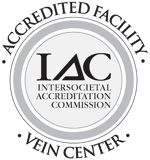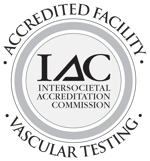As with any procedure, our vein doctors at the Vein Institute of NJ will discuss the potential side effects and risks that you must be aware of from any vein treatment. After your treatments to eliminate spider veins and varicose veins, you may be instructed to wear gradient compression stockings to decrease minor swelling you may experience and help your body’s healing process. Your vein doctor will provide you with detailed instructions on their correct placement, correct sizing to get the proper amount of pressure on your legs, and how long you’ll need to wear them.
While extremely rare, allergic reactions to the medication may occur. This is why you need to choose a vein treatment center with vascular doctors trained to treat that condition. Blood clots or deep vein damage may occur although these are also exceedingly rare. Our vein doctors will discuss the steps you can take to minimize these dangerous risks, and the signs to look out for that call for emergency treatment.
Additional possible side effects that you might experience after sclerotherapy treatments include:
- Bruises at the injection site, which normally fade shortly after treatment.
- Red, raised and perhaps stinging areas of skin at the injection site, which disappear shortly after treatment.
- Itchiness in the treatment areas, which goes away shortly after treatment.
- Spots or clusters of fine red blood vessels around the treated vein, which usually disappear shortly after treatment.
- In some cases, skin discoloration may occur along the treated vein and can take from 6 to 12 months to disappear fully.
- Lumps in the treated areas may be blood that gets trapped in the vein, causing inflammation. Check with your doctor if this side effect occurs, to be sure it fits within the range of expected, temporary side effects, and is not a symptom of a more serious side effect. If medical care is needed, your doctor may decide to drain the trapped blood with a small pinprick at a follow-up visit.
- Scarring can occur in treated areas if the sclerosant is injected outside the vein – which is why it’s so important to have a qualified vein specialist conduct your procedures.
Who shouldn’t have sclerotherapy? Pregnant or nursing women need to avoid this procedure, since injectable chemicals may be harmful to the fetus or get into breast milk. Even though pregnancy is one of the leading causes of spider or varicose veins, always tell your doctor if you are pregnant or nursing so that a different treatment option may be considered, or better timing chosen for your vein solutions. Most varicose veins disappear after the birth of your child…those that do not, can be readily treated by the expert vein doctors at the Vein Institute of NJ. Also tell your doctor if you have any allergies to sclerosant, or if you have had blood clots or inflammation in your legs (deep vein thrombosis).
To learn more about these vein issues and treatment, schedule an appointment with one of our board certified vascular specialists at the Vein Institute of New Jersey.










.jpg?width=944&name=Castle-Connolly-Top-Doctors-Emblem-Large%20(4).jpg)